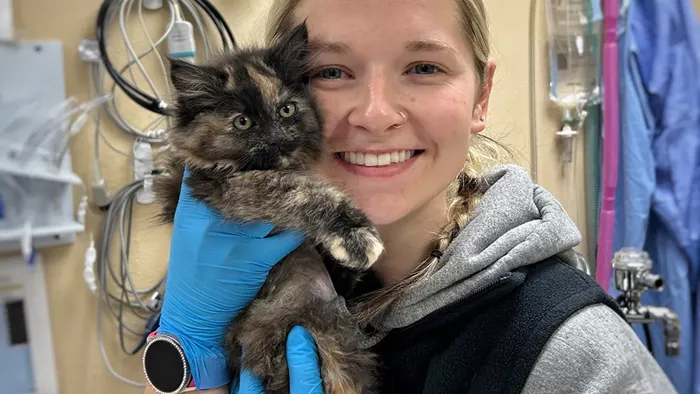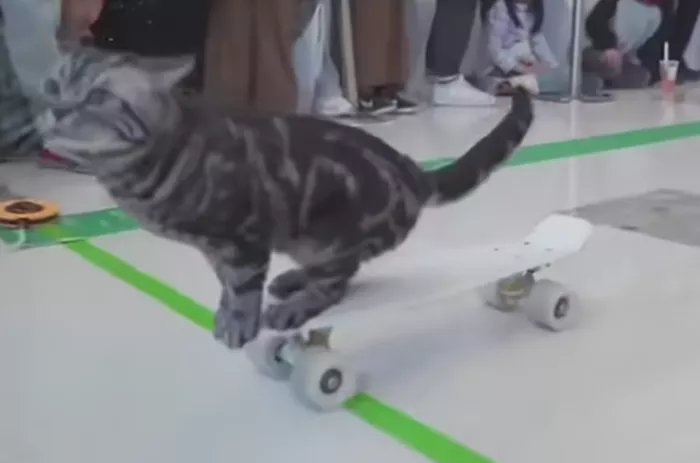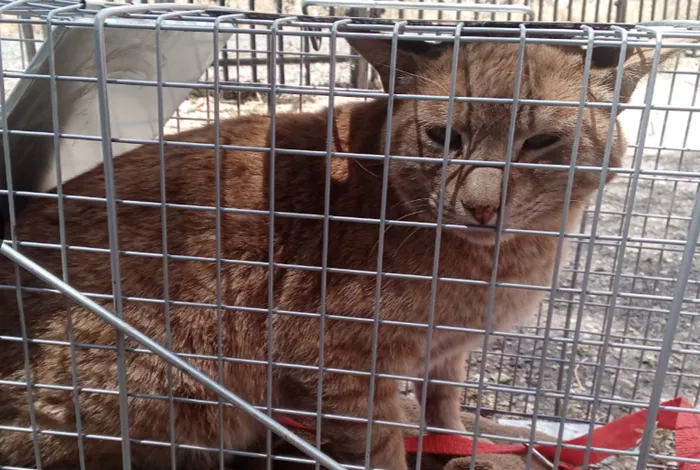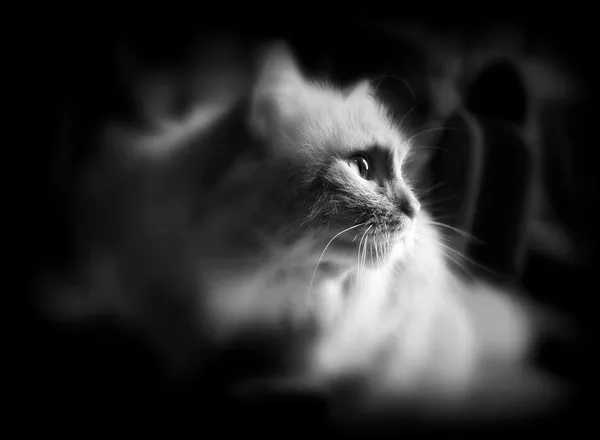BEND, Ore. – Veterinarians at the Humane Society of Central Oregon were astonished by a rare intersex kitten that recently arrived at their shelter, challenging typical feline genetics.
The kitten, a one-pound tortoiseshell-colored cat distinguished by swirls of black and shades of orange, was brought to the shelter in late April as part of a litter relinquished by its owner. Traditionally, tortoiseshell cats are female, but this particular kitten did not conform to that norm.
Initially identified as female and named Cindi based on coat color and external genitalia, veterinarians discovered something unexpected during a routine spay surgery after five weeks in foster care – the absence of a uterus and ovaries and the presence of two testicles. Consequently, the kitten was renamed Cinder.
“The decision to classify Cinder as male was influenced by both biological factors and societal perceptions,” explained Crystal Bloodworth, the shelter’s medical director, who has conducted tens of thousands of surgeries on cats throughout her career. “While it’s challenging to label Cinder as male, the presence of two testicles led us to this classification.”
Bailey Shelton, Clinic Manager with nine years of experience in veterinary care, likened the encounter with Cinder to “spotting a unicorn,” citing the rarity of male tortoiseshell cats and true hermaphrodite animals in her career.
Veterinarians believe Cinder likely possesses three sex chromosomes, XXY, a genetic condition that accounts for the tortoiseshell coloring due to two X chromosomes and the development of testicles due to the Y chromosome.
“In my 20-year career, encountering another XXY cat is exceedingly rare, making these cases truly remarkable,” added Annie Pulzone, HSCO Certified Veterinary Technician.
Explaining the complexities of Cinder’s condition, Bloodworth noted, “While Cinder lacks a uterus or ovaries, the presence of testicles and what appears to be a vulva complicates the usual gender classification.”
As Cinder matures, the shelter anticipates possibly reclassifying the kitten as female based on external genitalia and tortoiseshell coloring, traditionally associated with female cats.
Despite Cinder’s unique genetics, the shelter has received significant interest from prospective adoptive families and expects to finalize an adoption soon.























